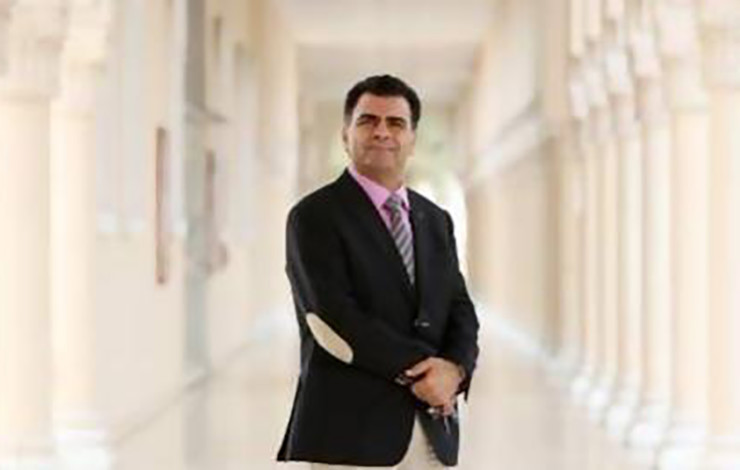Film can be a useful educational tool
https://www.thenational.ae/arts-culture/books/film-can-be-a-useful-educational-tool-1.399766
Though this still might be a situation suffered by some students out there, one man is on a mission to banish this outdated, passive method of teaching and to use film in a more dynamic and educational manner.
Dr Maher Bahloul is an associate professor of English and linguistics at the American University of Sharjah and the director of the Maher Language Institute, an Education Through Arts Institute. In his book Lights! Camera! Action and the Brain: The Use of Film in Education, Bahloul compiles 13 chapters written by academics and experts from around the world, each looking at various ways in which film and media literacy can have a profound influence on different areas of teaching.
One chapter looks directly at the cognitive benefits of film editing and how the post-production process explores the rhetorical and logical functioning of the human mind. Another highlights how video can be used to boost the learning capabilities of those with special needs, using case studies of deaf and autistic students.
In an interesting UAE-specific chapter, documentary filmmaking is discussed as a catalyst for third-culture children to understand their own cultural identity, something underlined by the increasing number of locally produced short films focused specifically on this issue.
Having put out the call for contributions for the book, Bahloul says he was delighted with the wide-ranging response.
“We had more than 20 candidates but I selected the best,” he says, adding that some of the writers were already respected figures. “Gail Burnaford and Arnold Aprill [who wrote the chapter concerning special needs], for example, are well known and have been in this field for decades. They were happy to join us.”
With technological advancements over the past decade having put the resources required for film and media production closer to people than ever before, for Bahloul, the issue largely revolves around why education institutions are failing to catch up.
“Students are constantly trying to produce, to edit. An overwhelming number of students are immersed in this new technology with videos and new media,” he says. “But there is a lack of media literacy in the classes offered – this is the major concern.
“The book makes it clear that media literacy is an important tool and should be offered in all universities, in high school, maybe even throughout the learning process. Students are already involved but what they’re lacking is the critical approach to media.”
With children now exposed to media in so many ways and from so many different angles, Bahloul says it’s important that they understand what they are dealing with. “If we don’t know how to read it, we don’t know how to interpret it, we don’t know how to deal with it. And we can get easily affected by it.”
At the American University of Sharjah, Bahloul says they have excellent opportunities for basic literary skills, with public speaking, academic writing courses and workshops for developing library abilities available to all students.
“But unless you’re a mass communications student or a digital design student, you’re never exposed to any media literacy training. It’s just not offered on a large scale compared to others. Media literacy is still at a stage where institutions have to make a decision and catch up with their students.”
But here in the UAE, where schools are generally modern and well-equipped, Bahloul believes there is a good opportunity to try out the methods discussed in his book.
“Many of them are new and open to suggestions. I think it would be a great initiative,” he says, adding that he’s hoping to bring a centre to the American University of Sharjah. He’s also looking to drum up support by taking his book to the Abu Dhabi International Book Fair this month (to be held from April 24-29).
“At the end of the day, this is really a pedagogy; how learners could learn better, faster and more effectively,” he says. “Using film is only one glamorous way. Whether we like it or not, film touches all education one way or another. In this book, we ask: ‘Why isn’t Hollywood based in all university campuses?’ That’s where we expect innovation, we expect projects to come up, where we expect geniuses to come out.”
